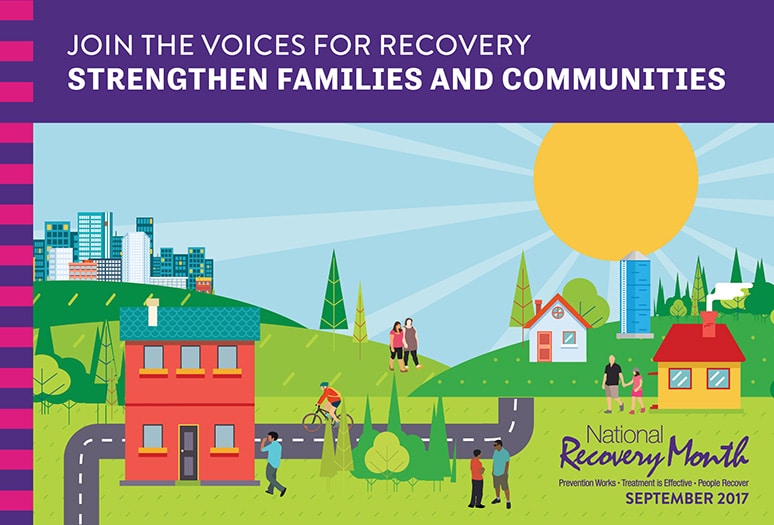Every September people gather to raise awareness and understanding about substance use and mental health disorders. National Recovery Month not only raises awareness but also celebrates those who are in recovery and share that recovery is possible. If you think about it, you could probably name multiple people in your life who do or who have previously struggled with a mental health or substance use disorder. Statistically speaking, there are over a billion people globally that struggle with addiction or mental health disorders and millions in the United States alone.
Statistics on disorders like depression, anxiety, eating disorders, PTSD, substance use, bipolar, and schizophrenia give us data, but personal experience tells us that people are suffering, dying, and isolated. Those people may be someone we love; it may be us personally, or it may be both.
If you have never heard or believed it before, let me be the first to emphasize that YOU ARE NOT ALONE in your experience. In fact, there are millions of people who understand what it is like to struggle with a brain that has been highjacked by a disorder.
This year’s theme for National Recovery Month is Join the Voices of Recovery: Strengthen Families and Communities. Since we know feelings of disconnection worsen many disorders, the intent of this year’s theme is specifically to build support networks around those affected by mental health or substance use disorders by offering connection opportunities.
SAMHSA’s Public Service Announcement
Communities around the country are coming together in different ways to raise awareness. There are Recovery Walks, like the Birmingham Recovery Walk 2017 on September 23, to celebrate recovery, provide hope, and offer connection opportunities through fellowship. Learn more about events in your community by visiting SAMHSA’s National Recovery Month Calendar.
There are also people who have shared their stories of recovery to offer encouragement, connection, and hope.
You are welcome to give your own recovery story at RecoveryMonth.Gov.
To contribute to the awareness raising efforts, SAMSHA has created the free 2017 Recovery Month Toolkit for you to download and distribute to contribute to raising awareness.
Struggling with mental health and substance use disorders can be excruciating, and you do not have to experience it alone. Someone is waiting to support you on your recovery journey. Making connections through online forums, events like Recovery Walks, support meetings, or residential treatment like Magnolia Creek, can make life with a disorder less overwhelming. As Brene Brown says, “Connection is why we are here; it is what gives us purpose and meaning to our lives.”
If you or someone you love is struggling with a mental health disorder, please do not hesitate to reach out to Magnolia Creek. We would be happy to talk with you about resources and ways to get you or your loved one the support you deserve. Call us at 205-409-4220 or complete our contact form. Remember, you don’t have to experience this alone.




